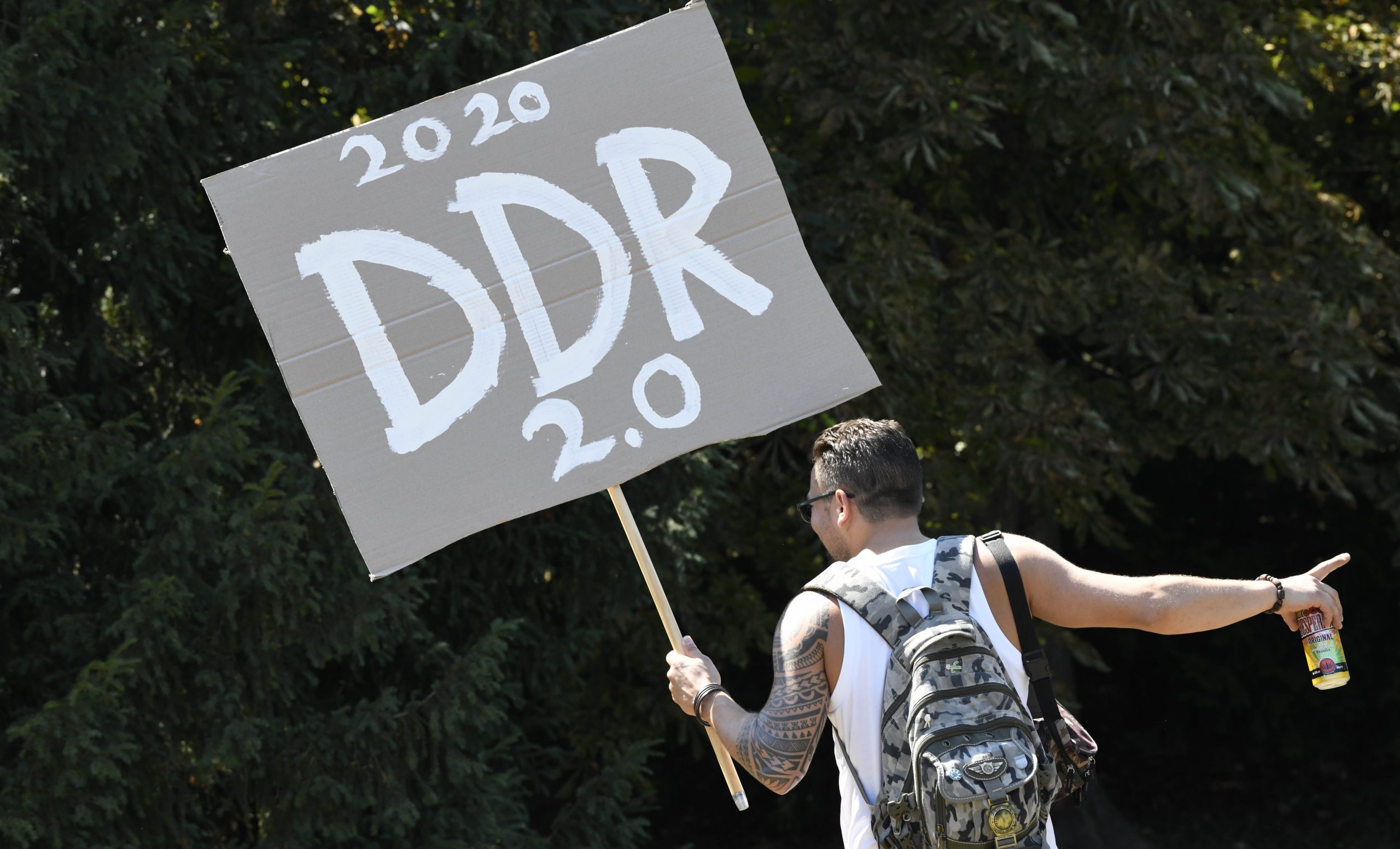Even the Germans Are Coronavirus Protesters Now

According to the Berlin police, some 20,000 protesters took to the streets last weekend to oppose nationwide lockdown measures designed to prevent the spread of COVID-19. Germany has been praised internationally for its efficient management of the crisis, which is why most of Berlin’s political class was upset by the large gatherings.
The protests have been organized and led by Michael Ballweg, a tech entrepreneur and political outsider, who founded “Querdenken 711,” an anti-lockdown movement in the city of Stuttgart. The Berlin protest, his largest so far, drew thousands of citizens who oppose ongoing travel and business restrictions, as well as the diminishment of their most fundamental rights—including their right to protest. They were denied that when the crowd was forced to disperse by police for not respecting COVID-19 measures.
German parliament vice-chairman and liberal democrat politician Wolfgang Kubicki told the press that he understands the protesters, whom he called “simply desperate because they no longer know why these measures are being implemented.” Video footage of the event itself showed a diverse crowd of lockdown opponents and counter-protesters (who, ironically, were also breaking social distancing rules), ranging from environmentalists, dreadlocked peace advocates (the German “Friedensbewegte”), LGBTQ advocates, and left-wingers. European broadcaster Euronews said there was also a “small” far-right presence.
You wouldn’t know any of this, however, if you read CNN’s coverage, which introed an article with: “A large crowd of far-right groups gathered for a ‘sit-in’ at Berlin’s iconic Brandenburg Gate on Saturday to protest against the German government’s coronavirus restrictions.” Is it any wonder that most of the protesters have no love for the establishment press?
Politico Europe cited a spokesperson for the German government saying that “the demonstrators had misused Germany’s constitutional right to protest to flout public health warnings.” One might point out that showing opposition to government policy is the entire point of having a protest in the first place. The self-fulfilling prophecy—of banning lockdown protesters because they break the very policy that they view as illiberal—didn’t make the cut in German courts, which have continuously upheld the right to freely assemble.
French and German politicians are famously on their high horses when it comes to civil rights situations abroad. Not a week goes by in the European Parliament in which members don’t reprimand Hungary, Belarus, or Turkey for their track records. However, when the most fundamental right—that of free assembly and speech—is exercised, the political class sneers at what they call “Covidiots”.
Oddly enough, the left-wing Labor Day protests back in May didn’t draw any comparable reaction, nor did the Black Lives Matter protests just last month. In both situations, the political establishment had nothing but support for demonstrators who rarely wore masks, and who didn’t keep any social distance. It is abundantly clear that their banning of the lockdown protest has little to do with respecting COVID-19 rules and everything to do with the political priorities of those in charge.
As the economic effects of the lockdown become more apparent, and the hard-hitting realization that Sweden’s no-lockdown policy worked sinks in, we will all eventually have to reject the insanity that are shop and border closures. We will then discover that the so-called conspiracy theorists weren’t far off from our worst nightmares: emergency powers have legitimized even vaster surveillance, and the notion that the government actually has the power to forcefully close down events and businesses is now commonly accepted. Whatever constitutional protections there are for engaging with law enforcement, the early days of the COVID-19 pandemic have challenged them, backed by the fear that governments know all so well how to use.
Protests such as the one in Berlin often attract questionable figures. However, if we are able to distinguish rioters from legitimate protesters, as the press so masterfully did during the BLM demonstrations, then there is no reason to believe that we cannot afford the same privilege to anti-lockdown demonstrations. That is, unless the press serves the interests of the state—which all too often funds it in Europe—and which is worried that a sign of defiance could change public opinion. In Serbia, which dropped the lockdown at the end of May, the president suggested a renewed lockdown over a single weekend. As a result, days of protests ensued, which led the Serbian government to pass on the planned closures.
It appears that this is the most notable worry of those who favor strict lockdowns: that it is increasingly hard to take newly recovered freedoms back away. As this pandemic lingers on, we will all become lockdown protesters eventually.
Bill Wirtz comments on European politics and policy in English, French, and German. His work has appeared in Newsweek, the Washington Examiner, CityAM, Le Monde, Le Figaro, and Die Welt.